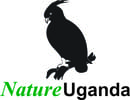Conservationists Warn Against Commercial Parrot Breeding

Conservationists and animal welfare advocates convened at Hotel Africana for a public talk to highlight the risks of using commercial parrot farming as a conservation tool. The event, organised by NatureUganda in collaboration with World Animal Protection brought together over 100 participants in the conservation and animal welfare space. Dr. Rowan Martin, Director of Bird Trade Programmes at the World Parrot Trust and keynote speaker, emphasized the intricate dynamics of the parrot trade. “The interactions between species in the trade are complex. Increasing the supply of one parrot species can often drive demand for rarer, more endangered species. Large-scale parrot farming also opens the door to illegal trade and laundering, which exacerbates the pressure on already threatened populations,” he said.
The event also featured presentations from Mr. Joward Baluku, a senior wildlife officer at the Ministry of Tourism, Wildlife, and Antiquities, and Mr. David Musingo, who shed light on parrot conservation, illegal wildlife trade, and policy solutions. Both speakers underscored the urgent need for a multi-faceted approach to parrot protection.
Mr. Musingo’s presentation delved into the pervasive issue of illegal wildlife trade, noting that the African Grey Parrot, one of Uganda’s most iconic bird species, faces alarming declines due to habitat loss and poaching. “Policy enforcement and community engagement are key to tackling this crisis,” he stated.
The public talk coincided with the publication of a significant study in Conservation Biology, which evaluated the feasibility of using captive-breeding to ease the demand for wild-caught parrots. The study reviewed 16 threatened parrot species and revealed critical gaps in understanding how the trade impacts both wild populations and broader ecosystems.
“While captive-breeding could theoretically reduce pressure on wild populations, its effectiveness is highly species-specific and context-dependent. The normalization of trade in one species may inadvertently stimulate demand for rarer species,” Dr. Martin explained.
Edith Kabesiime, Wildlife Campaign Manager at World Animal Protection, urged attendees to consider the broader implications of parrot farming. “Even if we set aside the animal welfare and public health risks, the conservation implications of expanding parrot farming are profound. The practice could exacerbate the very challenges it aims to solve, jeopardizing fragile ecosystems and accelerating species decline,” she warned.
Achilles Byaruhanga, Executive Director of NatureUganda, reinforced the importance of safeguarding Uganda’s parrots, particularly the African Grey Parrot. “Protecting Uganda’s parrots is not just about saving an iconic species—it’s about preserving a vital part of our biodiversity. The insights shared during this lecture provide a roadmap for sustainable conservation efforts,” he remarked.
The event concluded with a strong call for policy action, with organizers and participants urging policymakers to scrutinize the evidence before endorsing commercial parrot breeding as a conservation strategy. Attendees also discussed alternative solutions, including strengthening enforcement against illegal wildlife trade, promoting community-based conservation, and enhancing public awareness campaigns.
Presentations
- Conservation of the African Grey Parrot in Uganda: Policy, Legal and Institutional Framework (PDF)
- The truth about global wildlife farming (PDF)
Related Posts
Recent Posts
Safeguarding Uganda’s Only Breeding Population of Rüppell’s Vultures
Culture, Traditional Knowledge and Uganda’s Wetlands: Insights from the World Wetlands Day 2026 Public Dialogue
Annual Planning Meeting Sets the Course for Conservation Action in 2026
All Categories
- capacity building (1)
- Conservation and Development (36)
- Eco-tourism (6)
- Education and Awareness (15)
- Forests (13)
- Gorvenance (2)
- Habitats (14)
- membership (2)
- Nature walk (3)
- People (10)
- Projects (13)
- Public dialogue (10)
- Research and Monitoring (23)
- Sites (6)
- Species (14)
- Wetlands (17)
- Wildlife (10)




